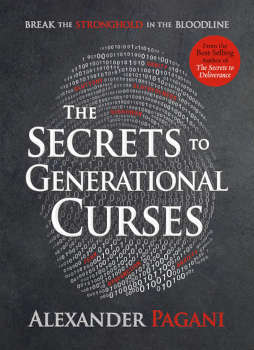Understanding Generational Curses, Part 1: Debunking Common Myths
In the realm of Christianity, the notion of generational curses has become a hotly contested subject.
These curses are often regarded as spiritual inheritances passed down through family lines, bringing afflictions and struggles to successive generations. However, before delving into the complexities of this concept, it is imperative to address the misinformation that surrounds it, as misinformation poses a formidable obstacle to its proper understanding.
Misinformation, the dissemination of false or erroneous information, exists in abundance when it comes to generational curses. It is a persistent adversary to the revelation of these curses and often obscures the truth. When traveling across the country, ministering to Christian congregations, one encounters the need to correct these misconceptions more frequently than administering deliverance itself. The correction of these misunderstandings is a prerequisite to dismantling generational curses since misinformation’s primary goal is to mislead the church.
Join Alex Pagani and Guest Host Mondo De La Vega LIVE with Charisma Magazine Online, Monday, Sept. 18th @ 4 p.m. for a special LIVE Q&A EVENT! Ask your questions to Alex about generational curses, spiritual warfare, insights on principalities and powers and his latest book, The Secrets to Generational Curses!
Jesus warned against the danger of being in error by saying, “You are in error because you do not know the Scriptures or the power of God,” (Matt. 22:29, NIV). Error, in this context, is more perilous than false doctrine. While false doctrine is usually evident and rejected by the larger church community, error can go unnoticed, leading to confusion and the ineffectiveness of sound doctrine.
The historical perspective on the rejection of generational curses reveals that it is a relatively modern phenomenon.
The early church wholeheartedly believed in the existence of demons, deliverance and generational curses. They actively practiced the ministry of deliverance for both believers and nonbelievers.
Interestingly, a significant portion of the misinformation surrounding generational curses today is propagated by well-intentioned believers, including theologians, who seek to help the church walk in the fullness of Christ. Their aim is to remove the preoccupation with blaming demons and curses for all of life’s challenges while neglecting personal responsibility for habitual sinful behavior. It is worth noting that those spreading this misinformation generally do so without malicious intent but with a genuine desire to assist the church. Unfortunately, this well-intentioned dissemination only perpetuates what can be termed as “fake news” about generational curses.
One commonly heard argument against the possibility of a believer having a generational curse is the claim that “Jesus became the curse” when He died on the cross.
Get your FREE CHARISMA NEWSLETTERS today! Stay up-to-date with current issues, Holy Spirit news, Christian teachings, Charisma videos & more!
This assertion is often supported by referencing Galatians 3:13 (ESV), which states, “Christ redeemed us from the curse of the law by becoming a curse for us—for it is written, ‘Cursed is everyone who is hanged on a tree.'” The argument posits that if Jesus became the curse, then the curse no longer exists, rendering it unscriptural to suggest that a Christian can be afflicted by such a curse. However, this line of thinking overlooks the fact that the Greek word “ginomai” (become) also appears in 2 Corinthians 5:21 (ESV), where it is said that Jesus “made him [Christ] to be sin who knew no sin so that in him we might become the righteousness of God.” If we apply the same reasoning that “become” implies complete removal or eradication, then the presence of sin should have been entirely eliminated in the believer because Jesus became sin. Yet, this contradicts 1 John 1:8, which acknowledges the ongoing presence of sin in the life of a believer.
The apostle John, cognizant of the fact that believers still sin even after accepting Christ as Savior, emphasizes the need for daily confession of sin. He goes further, indicating the necessity to break the curses that give sin legal grounds in a believer’s life. This understanding is encapsulated in 1 John 1:9 (KJV): “If we confess our sins, He is faithful and just to forgive us our sins, and to cleanse us from all unrighteousness.” The phrase “cleanse us from all unrighteousness” can be understood as identifying the source that provides legal grounds for particular sins and being cleansed from them through deliverance. Thus, it goes beyond mere daily confession to addressing the root causes of sinful behavior.
Generational curses remain a topic of theological and practical significance in the Christian faith. To understand and address them properly, it is crucial to confront the misinformation that clouds the discussion. The presence of misinformation should not deter believers from exploring the biblical understanding of generational curses and the need for deliverance.
While the work of Christ on the cross broke the power of these curses, their presence may persist, necessitating spiritual discernment and deliverance. Ultimately, a time is foreseen when sin, death, hell, demons, the devil and generational curses will be completely eradicated and swallowed up in victory, as prophesied in 1 Corinthians 15:54. Until then, diligent study of the Scriptures and reliance on the power of God remain essential for believers seeking freedom from generational curses. {eoa}
To find out more about Alexander Pagani’s book, “The Secrets to Generational Curses,” click here!
Join Charisma Magazine Online to follow everything the Holy Spirit is doing around the world!
















































